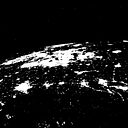The Real Climate Impact of the Hunga-Tonga Volcanic Eruption: Don’t Be Fooled By Denialism
The volcano reshaped the seafloor — now it’s being used to shape our minds
Volcanoes are like Earth’s climate regulators, operating on both long and short timescales. While they play a crucial role in the carbon cycle over millions of years, short-term volcanic eruptions can also have significant but temporary effects on our climate.
For years, the summit of the massive undersea volcano known as Hunga Tonga-Hunga Ha’apai peeked out above the waves in the southern Pacific Ocean, looking like a miniature island. On January 14th, 2022, the drowned caldera under the South Pacific isles erupted in one of the most dramatic geologic events in recorded history. The volcanic eruption shot gas and ash 53 kilometers into Earth’s mesosphere. It darkened the sky over the 171 Polynesian Kingdom of Tonga islands. The most potent explosion observed on Earth in modern history unleashed a tsunami that reached Peru, and a sonic boom heard as far as Alaska. There were global consequences, too.

